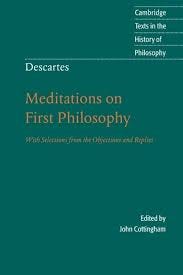How To Be A Philosopher
Or, 5 pieces of cool advice on how to be an argumentative little shit.
One of the many questions that nobody asks me is how I [not me, you] become a philosopher?
Well, shit…that’s easy, comrade. Just assume the position and post quotes that are unexplained, out of context, and likely misunderstood on various social media platforms.
Another tactic you can use is to talk about ‘laws of logic’ as if that means anything, and then reduce everything to them because ‘Logic, bro.’ But these won’t get you very far in your D&D quest to be a philosopher. Shocking, right? So let me give you some cool advice (5) that you can use in your character bio when you tell people, ‘I’m Something of a philosopher myself’.
Cool Advice numero uno:
Pick up a philosophy book. If you don’t know what a philosophy book looks like, ask the socially inadequate employee in your local bookstore to point you to the ‘philosophy section’. There, you will see things with intimidating titles like ‘Confessions’, ‘Existentialism is Humanism’, or ‘The Republic’. Do not be intimidated. Be brave and pick up at least one of these books. Get yourself a sandwich to celebrate your consumerist tendencies.

Cool Advice numero two:
Read the book three times. First, just read it. Don’t stop because it’s confusing - power through. Second, upon completion of this first read, write down your thoughts. Do you know what they were talking about? What was the general aim? And so on. Third, reread the book, but this time, write in the book. Don’t be afraid, a book that hasn’t been written in is a waste. For example, I have a third-hand copy of Leibniz’s Monadology, which includes two commentators and their views. I get to argue with Leibniz and these mysterious comments. Mark out passages that you still don’t understand.
Finally, put the book down and go outside. After a day or two, pick the book up again. Now, you are actually going to read it. Read everything, the back, the foreword, the intro, the main text, and the afterword (if there is any). Write down what they will argue for (thesis), why it’s important (is it? Or is it bookshelf snobbery?) What effect would it have on life if you accept its conclusions? With these personalised questions, apply them to every single paragraph. (Note - anyone who told you that they read such and such philosopher and understood everything at once is full of shit, and should probably die. That’s just my opinion, though, no need to spread it around).
Cool Advice Numero trois
Go on YouTube and search
. You can thank me later.Cool Advice numero fyra
Write, baby! Don’t even come at me with ‘oh, I don’t have time to write’ or ‘geez, I wish I could write but I can’t because I am a cockwarbler’. First, fuck you - you ain't that busy and your life ain’t that great. Second, everyone can write; you choose not to. So, put on your big adult pants and pick up that laptop and type until your fingers bleed! - ok, I got carried away, but the point is the same. You must write something. What don’t you accept about the book you just read? What do you accept and why? Is there something they missed to make the argument stronger? Does your worldview change because of what they said? These reflective writings will prompt you to engage with the ideas on a deeper level. And develop your comprehension skills.

Now, once you’ve written your thoughts out - hide them, or set them on fire. Now, go and summarise the book you just read to a pal. No pals? I got advice for you, too: talk to the cat/dog? They died because you bored them to death with your non-philosophical discourse about Love Island? I got you covered - speak to the plants. No Plants? The couch. No Couch? Get a job, you knob. If you can’t explain something without sounding like a chatbot, you should get offline, too.
Cool Advice numero vijf
Stop debating people online. Show me the online debate where anyone excepted (wink wink) defeat from the factish Google Gods? Have discussions instead. Remember, a debate seeks a ‘winner,’ while a discussion aims to gain a deeper understanding. Of course, you will inevitably hold P and someone else will hold not-P, but resist the urge to say ‘agree to disagree’ - that’s stupid, figure out why for yourself.
So there you go, follow those cool pieces of advice and you too will be the life of the wake.
Bonus* Read Soren Kierkegaard's ‘repetition’ and apply it.
Andrew (17/09/25)
(For those of you who cannot tell - this is a parody of certain ‘social-media’ style philosophy advice).





I had a prof in grad school who suggested the three-reads method. She also recommended reading Kant before bed and going to a dance club after reading Hegel. This essay is actually really helpful and encouraging as someone who has been through/is in the throes of trying to be a philosopher, essentially reducing it to first principles was really nice.
Sounds mostly right. Especially the reading stuff three times then burning your notes.
The ancients seem to have thought it was more straightforward somehow.